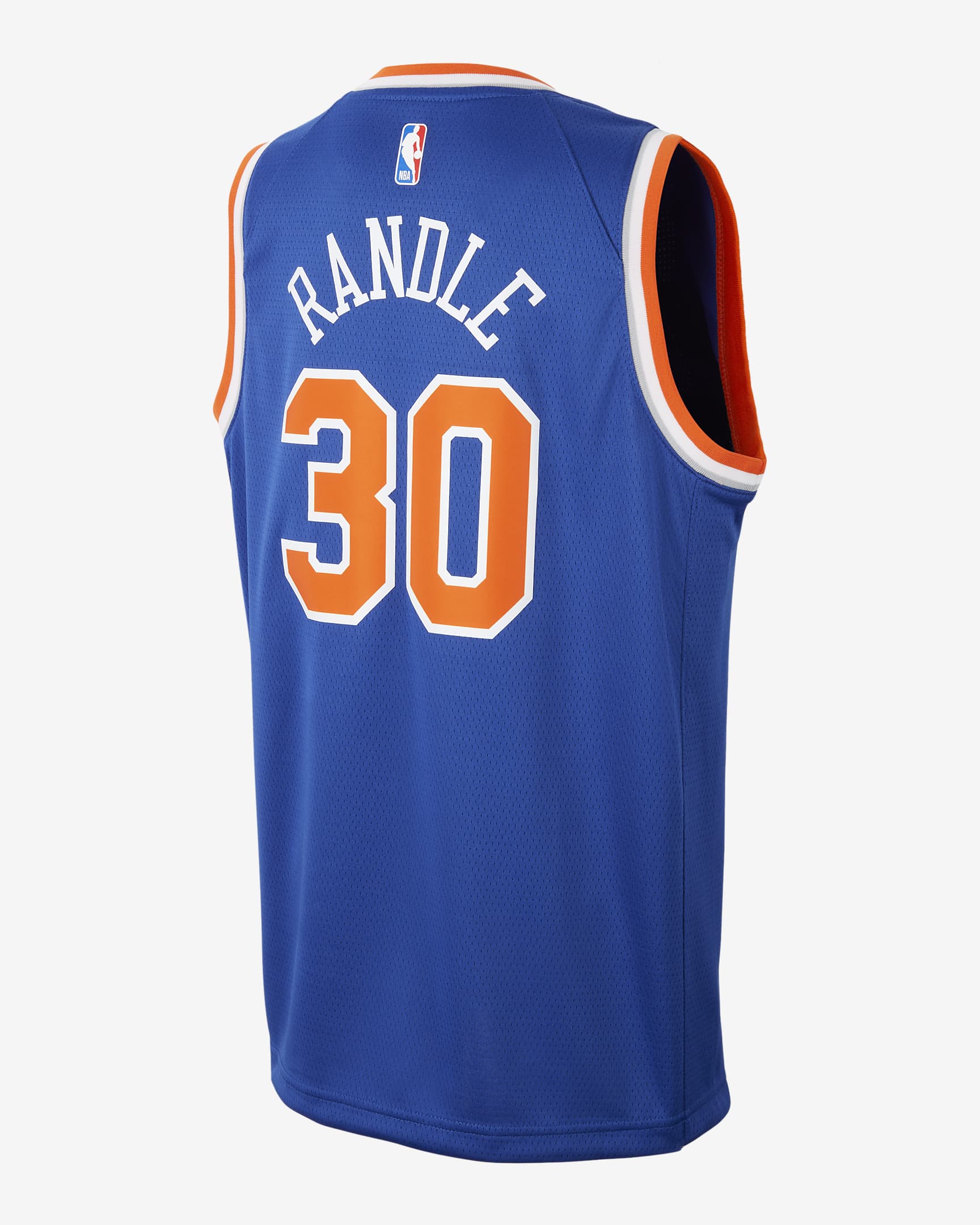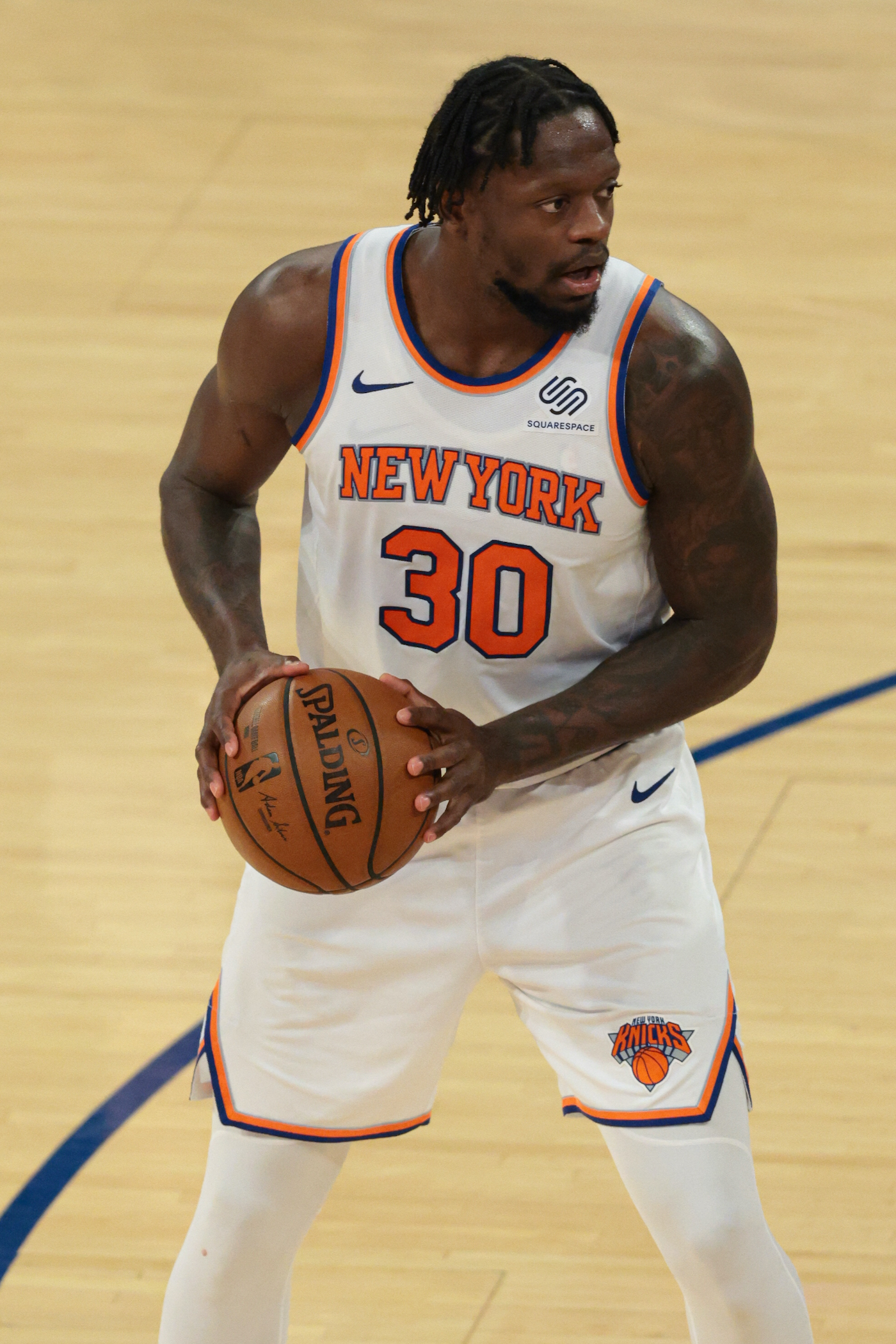Is Julius Randle, the Minnesota Timberwolves' versatile forward-center, finally shedding the shackles of playoff disappointment? The narrative surrounding Randle has dramatically shifted, with his performances this postseason suggesting a complete transformation, challenging the very foundation of previous criticisms.
For years, the shadow of postseason underperformance clung to Randle, a narrative often amplified by contrasting performances against his regular season achievements. This perception, whether deserved or not, painted him as a player who faltered under the bright lights of the playoffs, a stark contrast to his regular season dominance. Now, however, a compelling new story is being written. Randle's play is not just a step up; it's a resounding statement, a rewriting of his playoff legacy, leaving many questioning their earlier assessments.
Here's a closer look at the career and current status of Julius Randle:
| Category | Details |
|---|---|
| Full Name | Julius Deion Randle |
| Current Team | Minnesota Timberwolves |
| Position | Forward-Center |
| Height | 6' 8 (2.03 m) |
| Weight | 250 lbs (113 kg) |
| Date of Birth | November 29, 1994 |
| Birthplace | Dallas, Texas |
| Draft | 2014, 7th overall pick by the Los Angeles Lakers |
| Years in NBA | 11 seasons |
| Career Earnings (estimated) | Over $130,873,842 |
| 2024-25 Season Stats (Averages) |
|
| Recent Performance (Playoffs) | Averaging 22.5 points, 5.3 rebounds, 4.5 assists, 2.5 three-pointers, and 0.8 steals per game in the series as Minnesota looked to advance to the Western Conference Semifinals. |
| Key Achievements/Awards | Details would be added when officially available for 2024-2025 season |
| Reference Website | NBA.com Player Profile |
The 2014 draft saw Randle selected as the 7th overall pick, beginning his NBA journey with the Los Angeles Lakers. Early career challenges and the adjustment to the league shaped his trajectory, and the team rebuild process also played a role in his early development. These formative years contributed to the narrative that would follow him.
The contrast between Randle's regular season output and playoff struggles was stark. While he consistently demonstrated scoring prowess and rebounding ability in the regular season, the postseason often presented a different picture. The intensity of playoff matchups, the heightened defensive pressure, and the increased scrutiny seemed to affect his performance. These challenges fueled the critical commentary, with many analysts and fans quick to point out perceived shortcomings.
Wednesday night's game, a 103-96 victory for the Timberwolves, offered a compelling example. Randle contributed 23 points, shooting 8-16 from the field, including 1-6 from beyond the arc, and converting 6 of 7 free throws. He added five rebounds, four assists, and a steal in 32 minutes of action. This type of balanced performance, a blend of scoring, playmaking, and defensive contributions, is increasingly becoming the norm for Randle.
This shift is not just about individual statistics; it's about the impact on the team. Randle's improved performances are providing a crucial offensive spark. His ability to score in various ways, from driving to the basket to knocking down mid-range jumpers, has made him a matchup nightmare for opponents. Moreover, his playmaking abilities have enhanced the Timberwolves' offensive flow, creating opportunities for his teammates.
The role of Rudy Gobert, a perennial Defensive Player of the Year candidate, also merits discussion. While Gobert has often been targeted in the past, the impact of the pairing is evident. The presence of an elite defensive player like Gobert allows Randle to focus more on offensive responsibilities, knowing that the defensive end is well-protected. This dynamic has proven to be effective, with the Timberwolves showcasing a solid defense and offensive firepower.
The narrative surrounding Randle has been persistent, with many critics quick to point out perceived shortcomings in his postseason performances. This narrative has been challenged by the events of the current playoffs, the Timberwolves have to punch their ticket to the Western Conference Semifinals.
The impact of Randle extends beyond points and rebounds. His leadership qualities are also on display. His ability to galvanize his teammates, to keep them focused under pressure, and to maintain a positive attitude in the face of adversity is invaluable. He sets the tone for the team, inspiring them to play with greater determination and resilience.
The evolution of Randle’s game extends beyond the on-court adjustments. His mentality, his approach to the game, has also undergone a transformation. He's demonstrated a willingness to adapt his playing style, to make the necessary adjustments based on the opponent and the game situation. His commitment to improvement is clearly reflected in his performances.
Another factor contributing to Randle's success is the coaching staff's ability to create game plans that emphasize his strengths. The coaches have found ways to maximize his scoring capabilities, utilizing him in situations where he can thrive. They have also provided him with the support and guidance he needs to excel.
The transformation in Randle's playoff performance is also reflected in the broader context of the league. Many star players are increasingly under scrutiny. The intense media coverage, the constant analysis, and the high expectations create a challenging environment. Randle's ability to rise above the pressure and excel in such a demanding setting is a testament to his resilience and determination.
The Timberwolves' quest for a championship. With Randle playing at such a high level, the team's prospects are significantly brighter. His presence on the court elevates the team's ceiling, providing the scoring punch, rebounding prowess, and leadership that are vital for success in the playoffs.
Randle’s wife, Kiyan Randle, has also been in the spotlight, particularly for her message to the Timberwolves coach. Public support like that from his family can have a positive effect on a player’s performance.
In conclusion, Julius Randle is currently writing a new chapter in his career. His performance in this postseason is a clear sign that he is capable of playing at an elite level when it matters most. By overcoming previous criticisms, Randle is making a compelling case for himself as a transformative player, solidifying his status as a force to be reckoned with.



